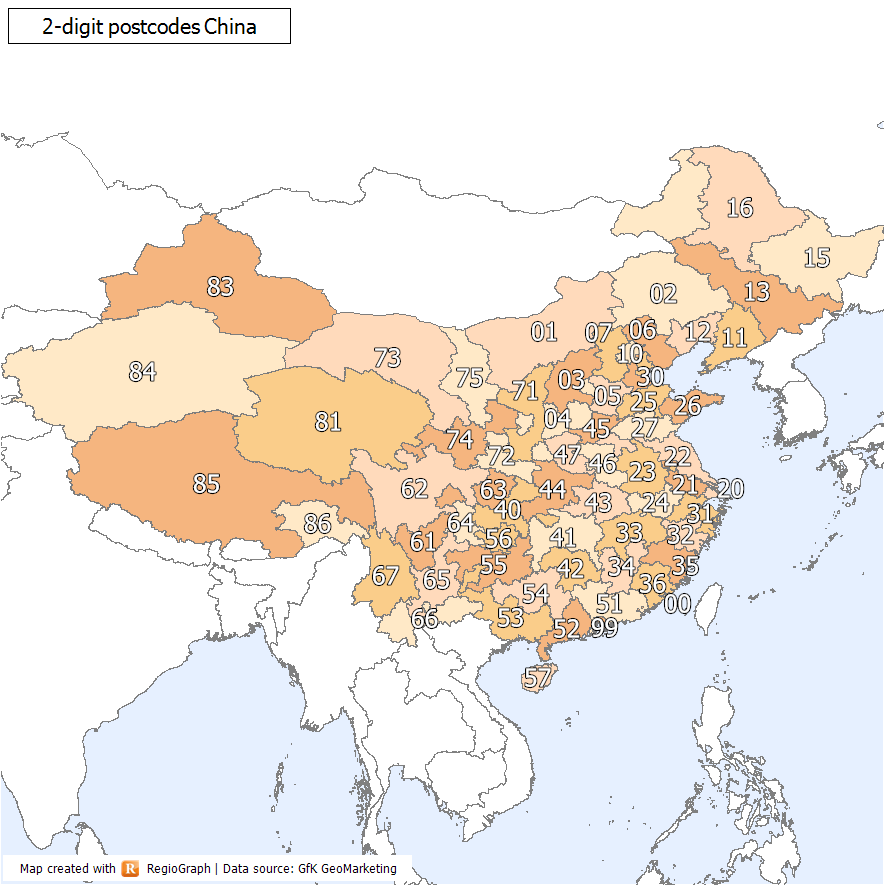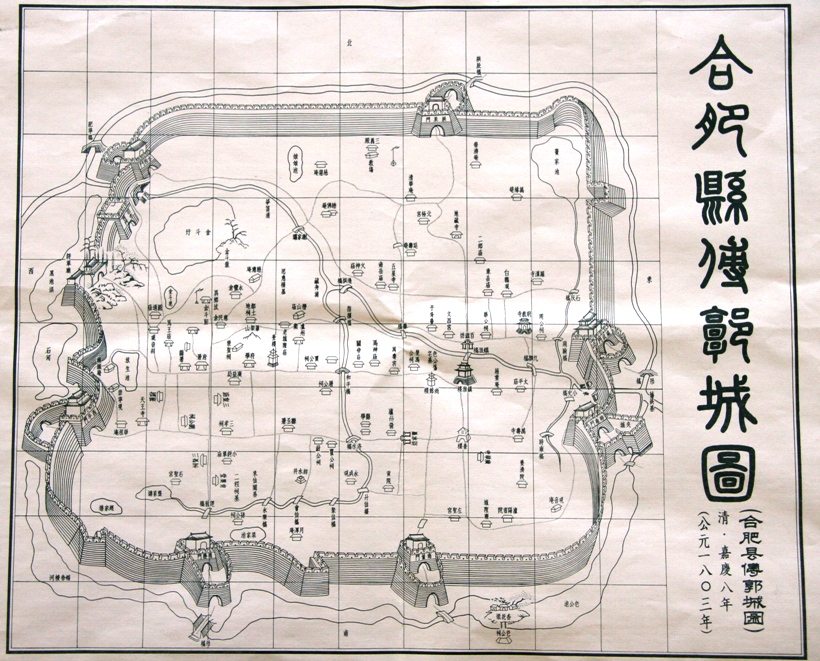|
Lujiang County
Lujiang County () is a county of Anhui Province, East China, it is under the administration of the prefecture-level city of Hefei, the capital of Anhui. It is the southernmost county-level division under the jurisdiction of the provincial capital, Hefei. It has a population of and an area of . The government of Lujiang County is located in Lucheng Town. Lujiang County has jurisdiction over 17 towns. During the Spring and Autumn Period, the Lujiang area was the location of the minor State of Shu (舒) Shu () was an ancient state in what is now Sichuan Province. It was based on the Chengdu Plain, in the western Sichuan basin with some extension northeast to the upper Han River valley. To the east was the Ba tribal confederation. Further east .... Administrative divisions Lujiang County is divided to 17 towns. ;Towns Climate References External links County-level divisions of Anhui Hefei {{Hefei-geo-stub ... [...More Info...] [...Related Items...] OR: [Wikipedia] [Google] [Baidu] |
Postal Code Of China
Postal codes in the People's Republic of China () are postal codes used by China Post for the delivery of letters and goods within mainland China. China Post uses a six-digit all-numerical system with four tiers: the first tier, composed of the first two digits, show the province, province-equivalent municipality, or autonomous region; the second tier, composed of the third digit, shows the postal zone within the province, municipality or autonomous region; the fourth digit serves as the third tier, which shows the postal office within prefectures or prefecture-level cities; the last two digits are the fourth tier, which indicates the specific mailing area for delivery. The range 000000–009999 was originally marked for Taiwan (The Republic of China) but is not used because it not under the control of the People's Republic of China. Mail to ROC is treated as international mail, and uses postal codes set forth by Chunghwa Post. Codes starting from 999 are the internal ... [...More Info...] [...Related Items...] OR: [Wikipedia] [Google] [Baidu] |
County (People's Republic Of China)
Counties ( zh, t=縣, s=县, hp=Xiàn), formally county-level divisions, are found in the third level of the administrative hierarchy in Provinces and Autonomous regions and the second level in municipalities and Hainan, a level that is known as "county level" and also contains autonomous counties, county-level cities, banners, autonomous banners and City districts. There are 1,355 counties in Mainland China out of a total of 2,851 county-level divisions. The term ''xian'' is sometimes translated as "district" or "prefecture" when put in the context of Chinese history. History ''Xian'' have existed since the Warring States period and were set up nationwide by the Qin Dynasty. The number of counties in China proper gradually increased from dynasty to dynasty. As Qin Shi Huang reorganized the counties after his unification, there were about 1,000. Under the Eastern Han Dynasty, the number of counties increased to above 1,000. About 1400 existed when the Sui dyn ... [...More Info...] [...Related Items...] OR: [Wikipedia] [Google] [Baidu] |
China
China, officially the People's Republic of China (PRC), is a country in East Asia. It is the world's List of countries and dependencies by population, most populous country, with a Population of China, population exceeding 1.4 billion, slightly ahead of India. China spans the equivalent of five time zones and Borders of China, borders fourteen countries by land, the List of countries and territories by land borders, most of any country in the world, tied with Russia. Covering an area of approximately , it is the world's third List of countries and dependencies by area, largest country by total land area. The country consists of 22 provinces of China, provinces, five autonomous regions of China, autonomous regions, four direct-administered municipalities of China, municipalities, and two special administrative regions of China, Special Administrative Regions (Hong Kong and Macau). The national capital is Beijing, and the List of cities in China by population, most populous cit ... [...More Info...] [...Related Items...] OR: [Wikipedia] [Google] [Baidu] |
Province (China)
The provincial level administrative divisions () are the highest-level administrative divisions of China. There are 34 such divisions claimed by the People's Republic of China, classified as 23 provinces (), five autonomous regions, four municipalities and two special administrative regions. The political status of Taiwan Province along with a small fraction of Fujian Province remain in dispute; those are under separate rule by the Republic of China, which is usually referred to as "Taiwan". Every province on Mainland China (including the island province of Hainan) has a Chinese Communist Party (CCP) provincial committee (), headed by a secretary (). The Committee Secretary is effectively in charge of the province, rather than the governor of the provincial government. The same arrangement exists for the autonomous regions and municipalities. Types of provincial level divisions Province The government of each standard province () is nominally led by a provincial commi ... [...More Info...] [...Related Items...] OR: [Wikipedia] [Google] [Baidu] |
Anhui
Anhui , (; formerly romanized as Anhwei) is a landlocked province of the People's Republic of China, part of the East China region. Its provincial capital and largest city is Hefei. The province is located across the basins of the Yangtze River and the Huai River, bordering Jiangsu to the east, Zhejiang to the southeast, Jiangxi to the south, Hubei to the southwest, Henan to the northwest, and Shandong for a short section in the north. With a population of 63.65 million, Anhui is the 8th most populous province in China. It is the 22nd largest Chinese province based on area, and the 12th most densely-populated region of all 34 Chinese provincial regions. Anhui's population is mostly composed of Han Chinese. Languages spoken within the province include Jianghuai Mandarin, Wu, Hui, Gan and small portion of Zhongyuan Mandarin Chinese. The name "Anhui" derives from the names of two cities: Anqing and Huizhou (now Huangshan City). The abbreviation for Anhui is "" after the h ... [...More Info...] [...Related Items...] OR: [Wikipedia] [Google] [Baidu] |
Prefecture-level City
A prefecture-level city () or prefectural city is an administrative division of the People's Republic of China (PRC), ranking below a province and above a county in China's administrative structure. During the Republican era, many of China's prefectural cities were designated as counties as the country's second level division below a province. From 1949 to 1983, the official term was a province-administrated city (Chinese: 省辖市). Prefectural level cities form the second level of the administrative structure (alongside prefectures, leagues and autonomous prefectures). Administrative chiefs (mayors) of prefectural level cities generally have the same rank as a division chief () of a national ministry. Since the 1980s, most former prefectures have been renamed into prefectural level cities. A prefectural level city is a "city" () and "prefecture" () that have been merged into one consolidated and unified jurisdiction. As such it is simultaneously a city, which is a muni ... [...More Info...] [...Related Items...] OR: [Wikipedia] [Google] [Baidu] |
China Standard Time
The time in China follows a single standard UTC offset, time offset of UTC+08:00 (eight hours ahead of Coordinated Universal Time), even though the country spans almost five geographical time zones. The official national standard time is called ''Beijing Time'' (BJT, ) domestically and ''China Standard Time'' (CST) internationally. Daylight saving time has not been observed since 1991. China Standard Time (UTC+8) is consistent across Mainland China, Hong Kong Time, Hong Kong, Macau Standard Time, Macau, Time in Taiwan, Taiwan, Philippine Standard Time, Philippines, Singapore Standard Time, Singapore, Time in Brunei, Brunei, Time in Mongolia, Mongolia, etc. History In the 1870s, the Shanghai Xujiahui Observatory was constructed by a French Catholic missionary. In 1880s officials in Shanghai French Concession started to provide a time announcement service using the Shanghai Mean Solar Time provided by the aforementioned observatory for ships into and out of Shanghai. By the end o ... [...More Info...] [...Related Items...] OR: [Wikipedia] [Google] [Baidu] |
Counties Of China
Counties ( zh, t=縣, s=县, hp=Xiàn), formally county-level divisions, are found in the third level of the administrative hierarchy in Provinces and Autonomous regions and the second level in municipalities and Hainan, a level that is known as "county level" and also contains autonomous counties, county-level cities, banners, autonomous banners and City districts. There are 1,355 counties in Mainland China out of a total of 2,851 county-level divisions. The term ''xian'' is sometimes translated as "district" or "prefecture" when put in the context of Chinese history. History ''Xian'' have existed since the Warring States period and were set up nationwide by the Qin Dynasty. The number of counties in China proper gradually increased from dynasty to dynasty. As Qin Shi Huang reorganized the counties after his unification, there were about 1,000. Under the Eastern Han Dynasty, the number of counties increased to above 1,000. About 1400 existed when the Sui dyn ... [...More Info...] [...Related Items...] OR: [Wikipedia] [Google] [Baidu] |
East China
East China () is a geographical and a loosely defined cultural region that covers the eastern coastal area of China. A concept abolished in 1978, for economical purposes the region was defined from 1949 to 1961 by the Chinese Central Government to include the provinces of (in alphabetical order) Anhui, Fujian, Jiangsu, Shandong and Zhejiang, as well as the municipality of Shanghai. In 1961, the province of Jiangxi was added to the region (previously it was considered part of South Central China). Since the Chinese government claims Taiwan and the few outlying islands of Fujian ( Kinmen and Matsu) governed by the Republic of China (Taiwanese government) as its territory, the claimed "Taiwan Province, People's Republic of China Taiwan Province is a nominal administrative division of the People's Republic of China (PRC). The PRC constitution defines Taiwan as part of its territories despite the fact that the PRC has never controlled any part of Taiwan since the ... [...More Info...] [...Related Items...] OR: [Wikipedia] [Google] [Baidu] |
Prefecture-level City
A prefecture-level city () or prefectural city is an administrative division of the People's Republic of China (PRC), ranking below a province and above a county in China's administrative structure. During the Republican era, many of China's prefectural cities were designated as counties as the country's second level division below a province. From 1949 to 1983, the official term was a province-administrated city (Chinese: 省辖市). Prefectural level cities form the second level of the administrative structure (alongside prefectures, leagues and autonomous prefectures). Administrative chiefs (mayors) of prefectural level cities generally have the same rank as a division chief () of a national ministry. Since the 1980s, most former prefectures have been renamed into prefectural level cities. A prefectural level city is a "city" () and "prefecture" () that have been merged into one consolidated and unified jurisdiction. As such it is simultaneously a city, which is a muni ... [...More Info...] [...Related Items...] OR: [Wikipedia] [Google] [Baidu] |
Hefei
Hefei (; ) is the capital and largest city of Anhui Province, People's Republic of China. A prefecture-level city, it is the political, economic, and cultural center of Anhui. Its population was 9,369,881 as of the 2020 census and its built-up (or ''metro'') area made up of four urban districts plus Feidong, Feixi and Changfeng counties being urbanized, was home to 7,754,481 inhabitants. Located in the central portion of the province, it borders Huainan to the north, Chuzhou to the northeast, Wuhu to the southeast, Tongling to the south, Anqing to the southwest and Lu'an to the west. A natural hub of communications, Hefei is situated to the north of Chao Lake and stands on a low saddle crossing the northeastern extension of the Dabie Mountains, which forms the divide between the Huai and Yangtze rivers. The present-day city dates from the Song dynasty. Before World War II, Hefei remained essentially an administrative centre and the regional market for the fertile plain to ... [...More Info...] [...Related Items...] OR: [Wikipedia] [Google] [Baidu] |




